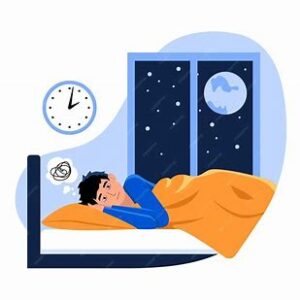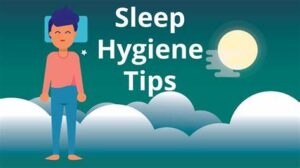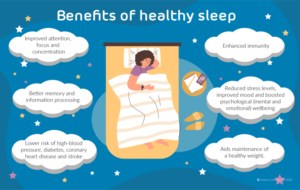Read time 6 minutes
This blog is another opportunity to feel grateful. Thank you, dear Universe, you continue to bless me with recovery and health.
Research reports show that on a full moon, people sleep less. I was even otherwise hitting the hay very limited post my diagnosis.

I think a lot changed for me.
In 2016, I was diagnosed with a rare disease called Isaacs’ Syndrome. Isaacs’ is a neuromuscular health condition that stems from muscle hyperactivity. In the process, I also discovered that I had Lyme disease. Lyme is a bacterial illness that gets transmitted through ticks.
Glaucoma also accompanied me. Glaucoma is an eye-related disease that damages the optic nerves. And Membranous Glomerulonephritis is a progressive kidney disease. I faced tremendous issues with my gut, stomach acid, and digestive enzymes. During my journey, I also developed Irritable Bowel Syndrome (IBS) and Diabetes. Besides Frozen Shoulder, Eczema, and high Blood Pressure.
The purpose of this blog post is to highlight the significance of sleep hygiene. It is an important part of managing any chronic or rare disease. It also improves sleep patterns, reduces symptoms, and has other proven health benefits.
Sleep is important for everyone. However, it becomes even more crucial when one is dealing with rare and chronic diseases. Good sleep helps cell and tissue repair and provides adequate rest to both the body and mind. It has deep routed links with managing diabetes, obesity, heart problems, and mental health.
Understanding Sleep Hygiene
Sleep hygiene concerns our sleeping habits. Good sleep hygiene means a set of healthy practices that promote healthy sleep. It supports and helps in our body’s natural ability to fall asleep. Regular practicing the concept means one is likely to wake up fresh and rested.
A healthy sleep hygiene contributes to our overall well-being. There are habits and practices that, if imbibed could be extremely helpful.
Some practical tips:

- For months together I pressed a couple of reflex points from a book by Dr. Singh on Acupressure. The points as directed were in the legs and palms (the relax centers: nervous system, solar plexus, brain, and pineal). It eased my sleep.
- A suitable ambiance was extremely helpful: making the environment of the bedroom conducive to sleep. A comfortable mattress and pillow, darkness, removal of distracting gadgets, quietness, etc.
- Also, as my Ayurvedic constitution is Vata, I avoided sleeping during day time (especially between 2 – 6pm). This habit helped a sound sleep at night.
- I followed a consistent bedtime routine.
- l slept and woke up better after making changes in my pillow.
- I refrained from much use of Air-conditioning and opened the windows while sleeping for some fresh circulation of air.
- I lit a small diya and some calming natural scent added comfort to the room ambiance.
- I completely avoid the use of mobile or working in bed.
- Practicing relaxation techniques can be very effective. Reading a book, listening to music, deep breathing, etc.
- I avoid heavy eating just before hitting the bed.
- I tried strengthening the mental link between relaxation, sleep, and the bed.
- I said no to nerve stimulants like nicotine and caffeine after 5pm as they interfered with falling asleep.
- More than often I had a warm water bath before sleep.
These activities did help bring sleep closer. However, Isaacs’ made my nervous system hyperactive with symptoms that made things a bit challenging. It was difficult to sleep peacefully when my body muscles were extremely exhausted.
The Challenges of My Rare and Chronic Diseases
The life of a rare patient starts showing signs of symptoms way before the actual diagnosis is done. And I was no different.
Life for sure is full of surprises. I was naive not to figure out, what started as mere health symptoms was just the foundation. It was building the base recipe for future burnout, and it led to severe consequences.
My rare and chronic diseases characterize day-to-day unpredictable situations and symptoms. Managing them was not only about a protocol instead was unique.
The situation made me vulnerable to creating further complications to my neurological condition. The sudden list of alien diverse symptoms and mood swings made it even more challenging to cope. I was overwhelmed by the waves of difficult emotions, and physical limitations.
My prescription was a huge list with a daily of 42 pills. It included medicines for Isaacs’ Syndrome, Lyme disease, and Membranous Glomerulonephritis. During my journey, I developed Blood Pressure and Diabetes. Also, acute problems with my Gut, stomach acid, and digestive enzymes.
To learn more about Isaacs’ Syndrome you can visit My Life Changing Story on Isaacs’ Syndrome – Ordinarily Rare
The impact of these conditions hit me in my face. It included difficulties falling asleep, frequent awakenings, and poor sleep quality. I often found myself staring at the ceiling wondering when on earth would I doze off.
It was lack of sleep that added to my deteriorating quality of life. It further added to my confusing list of symptoms like low energy levels and enthusiasm. I felt fatigued, irritated, and focus-deficient.
For weeks together it left the doctors wondering if the extra symptoms were prescription-induced or due to the diagnosis.
After thorough research on my daily lifestyle by the doctors, it was concluded that I was sleep deficient. I was advised to work on the basics of Sleep Hygiene.
The Benefits of Following Sleep Hygiene

Following Sleep Hygiene habits was helpful. I noticed an instant change in the intensity of my symptoms and therefore in my experience:
- Enough sleep led to positive emotional responses and eased my symptoms of mood disorder.
- The Physical benefits were visible in my immune function
- There was a clear reduction in my stress levels.
- My blood reports showed decreased inflammation.
- I felt energetic throughout the day.
- My blood sugar levels were a big concern but after following sleep hygiene, a lot of it got better.
Following certain practices reduced my symptom intensity. It improved cognitive function and increased a sense of well-being. Practicing them consistently always has better results.
It was quite interesting to read ‘Relax and Win: Championship Performance’ by Lloyd Bud Winter.
The writer describes a popular military method in which a routine helps the pilots to sleep within two minutes.
- Winter experimented with sports psychology particularly focusing on relaxation.
- The aim was also to improve the performance of pilots under combat conditions.
- It takes almost six weeks for the pilots to train themselves. However, the technique works well even when they are seated, or background noise, or after having consumed caffeine.
- The core idea is to clear the mind from active thoughts for at least ten seconds. Once that’s achieved it becomes much easier to dose off.
The Relaxation steps mentioned are:
- Sit on a chair with your back straight. The legs should be uncrossed and feet flat. Also, the hands inside your thighs.
- Close your eyes and breathe slowly.
- With every exhalation release tension.
- Relax the entire body.
- Associate relaxation with the word calm.
Once the Pre-requisite is done, then to Fall Asleep:
- Take 3 deep breaths.
- Now choose one of the following and do it for 5 minutes:
-
- For 10 seconds, silently repeat the words- don’t think.
- Picture yourself in complete darkness, in a large black velvet hammock.
- Imagine lying at the bottom of a still pond, looking up at the sky.
-

Sleep hygiene for individuals battling rare and chronic diseases is a must. In my experience, I saw myself putting a lot of effort into something that comes to us naturally. However, the above-mentioned techniques helped me fall asleep.
Post-diagnosis had a lot to do with getting sleep with the help of pills. However, it felt a lot better after the natural cycle took over. The transformative benefits included improved sleep patterns and reduced symptom intensity.
I successfully worked towards creating a schedule. It was about adequate exercise, healthy eating, and rest.
I encourage my readers to prioritize sleep hygiene. It is an essential component of our overall treatment plan. It could be the potential for positive change and an enhanced quality of life.
Any effort is a part of our individual preference. However, knowing these techniques and implementing them leaves me in my comfort zone.
DISCLAIMER
The views expressed above in this article are the author’s own and do not represent any kind of medical advice.


